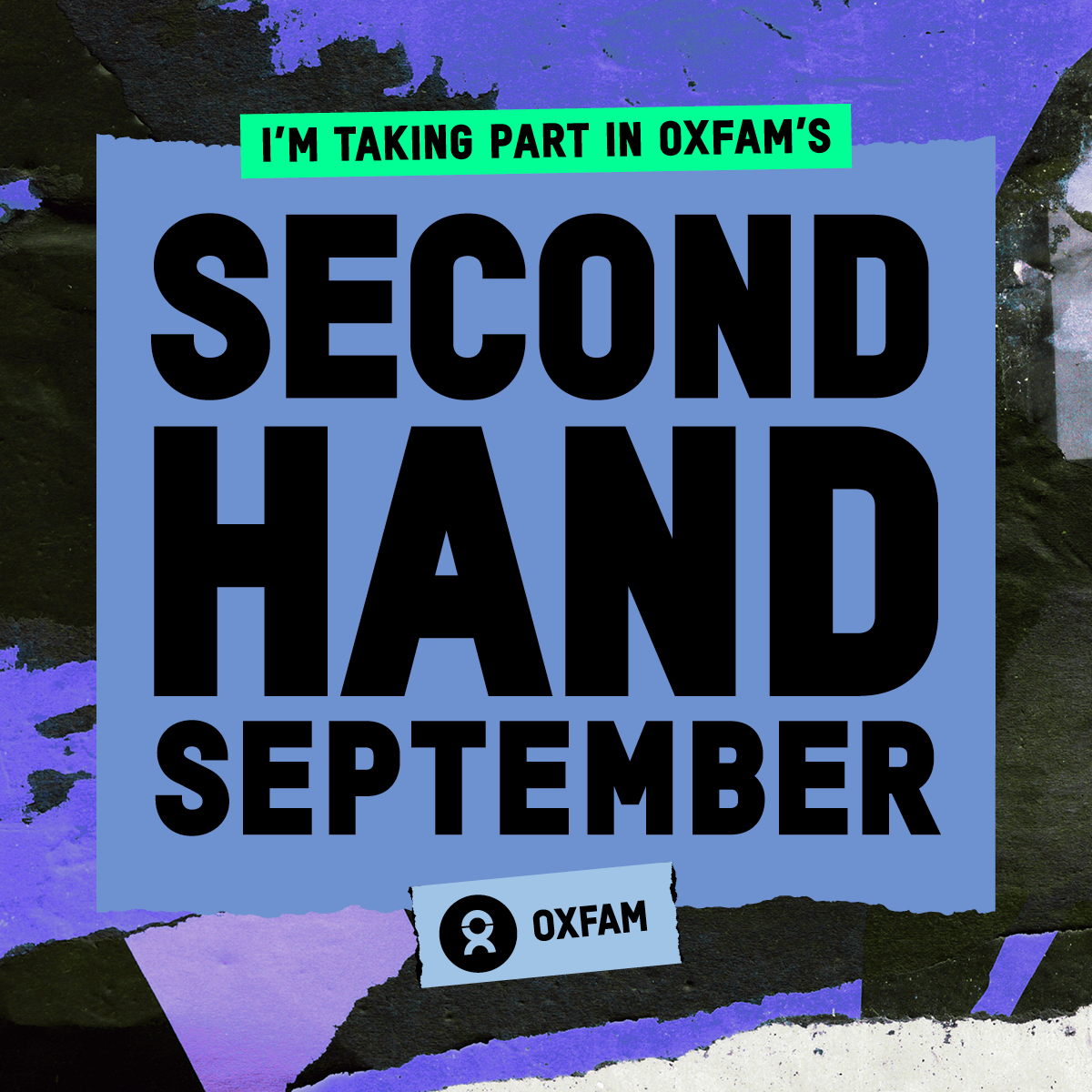If all UK adults bought half of their next wardrobe second-hand instead of new, it could prevent an estimated whopping 12.5 billion kilogrammes of carbon dioxide emissions entering the atmosphere, new Oxfam research reveals today. This is the equivalent to a plane flying around the world more than 17,000 times.
The findings launch Oxfam’s annual Second Hand September campaign, which encourages people across Scotland to shop preloved and donate what they no longer need or wear.
According to the climate action charity WRAP, the average adult wardrobe consists of 106 items, and Oxfam’s research shows that if half of those items had been bought second-hand, billions of harmful emissions created by the manufacturing of new clothes would have been prevented. Currently, only 10 per cent of wardrobe contents are second-hand.
Choosing second-hand fashion extends the life of clothes, reducing the need for brand-new clothes which produce climate-damaging emissions when they are manufactured. Oxfam is urging shoppers across Scotland to make a powerful fashion statement this September by dressing for the world they want.
Tom Richardson, Oxfam’s Operations Manager for Scotland, said: “The science is chillingly and consistently clear: we have reached a critical climate crossroads with devastating droughts, floods and cyclones already striking hammer blows to the low-income countries who did least to cause the climate emergency.
“Right now, the fashion industry is a major emitter of the greenhouse gases globally which are threatening the future of our planet. By consuming more consciously, people across Scotland can show they want a more sustainable fashion industry.
“When you shop second hand with Oxfam, you’re not only recycling and buying stylish outfits that don’t cost the earth, but you’re reinvesting your money into vital work beating poverty – supporting communities worldwide as they stand up to the climate crisis and fight the injustices that push people deeper into poverty. It’s time to get changed for the world we want.”
Further findings from Oxfam show that if each adult in the UK donated all the clothes that they have not worn in the past year to charity shops, with these used again by someone else, it could remove the need for 4.9 billion kg carbon entering the atmosphere. That is equivalent to a plane flying around the world more than 6,600 times.
The calculations come amid rising awareness of the negative effects of the fashion industry, which accounts for 10 per cent of global carbon emissions – more than international aviation and shipping combined.
Ruth MacGilp, an Edinburgh based sustainable fashion influencer and expert, is backing the campaign. She said: “Beyond the environmental benefits of reducing overproduction, overconsumption and waste of new clothing, I truly believe that shopping and wearing second hand can have a huge positive impact on our personal lives. From saving money and raising money for charity, to decluttering overstuffed wardrobes and disengaging from the fast fashion trend cycle, to connecting with the stories behind old clothes and learning to love what we already have, Second Hand September is the perfect opportunity to start on your own sustainable fashion journey.”
Oxfam is calling for people across Scotland to dress for the world they want this September by pledging to shop second-hand and donate all of their unwanted clothes to Oxfam.
While Scotland’s total ‘carbon footprint’ – which includes the emissions generated by our consumption of goods and services wherever in the world these arise – has fallen by a third since 2006, this decline is much slower than emissions generated in Scotland. Positively, if approved by the Scottish Parliament, the proposed Circular Economy Bill would give the Scottish Government the power to set new targets to reduce consumption emissions.
/ENDS
For more information and interviews, please contact: Rebecca Lozza, Oxfam Media and Communications Adviser, Scotland and Wales: rlozza1@oxfam.org.uk / 07917738450
Notes to Editor
- About Second Hand September
- Details of Oxfam’s statistical methodology are available upon request.
- Oxfam launched Second Hand September in 2019 to inspire people to shop in a way that is kinder to people and the planet. Second Hand September is a campaign to encourage people to donate and buy second-hand items in September. Participants can use the hashtags #SecondHandSeptember #FoundInOxfam on Instagram, TikTok and Twitter when they post their finds, and tag @OxfamGB @OxfamScotland https://www.oxfam.org.uk/get-involved/second-hand-september/
- WRAP (2022). Citizen Insights: Clothing Longevity and Circular Business Models receptivity in the UK. Retrieved from: https://wrap.org.uk/sites/default/files/2022-10/20220817%20Clothing%20longevity%20and%20CBMs%20receptivity%20in%20the%20UK%20Report.pdf
- Stats on Scotland’s carbon footprint: https://www.gov.scot/publications/scotlands-carbon-footprint-1998-2019/documents/
